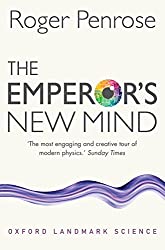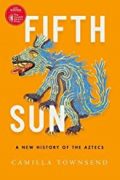
Rating: 7.7/10.
Book by physicist and mathematician Roger Penrose that touches on a lot of disparate topics in artificial intelligence, computability theory, consciousness, and advanced quantum physics. This book reads like a guided tour for an intelligent but non-specialist audience. The overall thesis is not revealed until the last chapter, where all the different threads are finally brought together.
The first four chapters talk about the Turing test, the Chinese room thought experiment, Turing machines, the halting problem, Gödel’s incompleteness theorem, etc. All of these topics were familiar to me, so I quickly skimmed this part. The author assumes no computer science knowledge and gives an outline of the main ideas of the proofs, with lots of examples: encoding Turing machines as numbers, then applying the diagonalization argument to construct a self-referential case, etc. The writing reminds me of GEB by Douglas Hofstadter, although it’s been a decade since I’ve read GEB.
The next 4 chapters switches gears and gives a tour of modern physics, starting from Newtonian mechanics and moving to special and general relativity, quantum mechanics, thermodynamics, and some quite advanced topics involving the entropy of black holes. Naturally, I am much less familiar with physics than the computer science portion, so most of the ideas were new to me. It’s impossible to understand it completely without a physics background, but the author tries to make it accessible with lots of illustrations and avoids overloading the reader with too much specialist terminology. Each section begins by building an intuition of the theory, explores some surprising discoveries, and ends with some philosophical implications (such as whether quantum superposition exists in reality or is it merely an accounting tool).
The final two chapters tie together the two threads and finally introduces the main “thesis” of the book: Penrose argues that consciousness cannot be merely algorithmic since we have flashes of insight and aren’t just following instructions like a computer program. He further speculates that quantum mechanics is responsible for the non-determinism required for consciousness to exist, in a universe where everything else is deterministic.
To me, this argument is unconvincing: it is assumed that no algorithm can do what humans can do. There is no evidence that quantum effects play a role in the brain, and even if it does, adding randomness to a computer program doesn’t really give it consciousness or free will (the first chapter in my free will book attacks this position). Overall, the book contains an entertaining and informative tour of physics, just the final chapter and thesis is weak.



